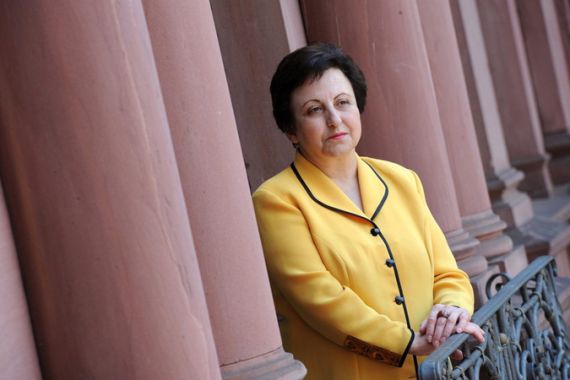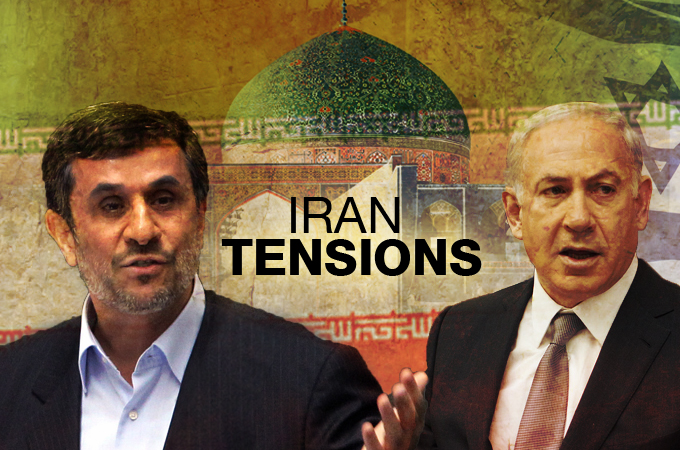I, too, am responsible for sanctions on Iran
Rent, transportation, food price and the shortage of medicine have become significant issues in Tehran after sanctions.

“Shortly after dawn, British Foreign Secretary William Hague took a shower, put on a tie, went to the UN Security Council and voted for another round of sanctions.” This was the heading of an e-mail I received from my friend Mazdak on July 12, 2012. The e-mail’s content was much shorter: “I feel sick to my stomach.”
Sanctions have only now started to impact me directly. Of course, there are degrees of impact and getting British Pounds from the University of Cambridge for research in Tehran has me living quite large these days.
Mazdak’s message was driven home only after I had tried to purchase an online article titled, “Autobiography as Ethnography,” and promptly blocked from doing so as a result of the freeze on all financial transactions with Iran.
More inquisitive ever since, I question the impact of the quadrupling of my university stipend’s value on the people I am here to study. In fact, justifying the presumed significance of my research to myself and to, what I hope will be, an Iranian audience is proving increasingly difficult.
I had aimed to contribute to our understanding of the relationship between media and social movements. But social movements are hardly the significant issue in Tehran these days. Rent, transportation, price of food and the shortage of medicine have taken primacy over all.
Where’s the uproar over sanctions?
Sometimes I wonder where the uproar is over “crippling sanctions” imposed on almost 80 million people? What has happened to all Iranian expatriates (activists, university professors, “experts”, etc) who rushed to American and European television channels in the aftermath of the last, and disputed, Presidential election in Iran, vehemently objecting the Islamic Republic’s brutal crushing of protesters, unleashing immense pressure on the Iranian state in the process?
Why aren’t they exerting the same kind of pressure on the US and European governments? Why aren’t they pointing out that Western-led sanctions are crushing those very same “people” in Iran? Is it that they are not invited back to make this point on FOX, CNN, ABC, NBC and all other broadcasters from which they received an open platform during the protests? Is it that they are interested in the “people” only in so much as it serves their own ambitions?
I wonder what exactly runs through the minds of the Green Movement’s leadership, mostly in prison today? After all, the primary platform on which they ran was to significantly improve people’s economic conditions.
 |
| Spotlight
Iran Tensions
|
Do they regret having taken the fight into the streets, as they did, allowing Western framed satellite images of their protests to transform into instances of their power directed at the state, pulling the rug from beneath Iran’s primary pillar of legitimacy: that of being a form of democracy with over 70 percent voter participation rate?
Eager to get the world on their side, did their internationalisation of the uprising not open the way for Western leaders to have far greater play in Iran?
I wonder if the Greens even see a link between their contribution to that global spectacle and the ease with which Washington can now justify “crippling sanctions” on a “dictatorship?”
Do right-wing hardliners, on the other hand, not regret rushing to suppress peaceful demonstrators who silently marched on in protest to the election results, to Ahmadinejad, to the way they saw their lives disintegrate before them? Crushing them seamlessly, do these hardliners not believe that they shoulder the bulk of the responsibility for where we are now?
And what about Nobel Peace Laureate Shirin Ebadi‘s stance amid the brewing war between Washington and Tehran, where American officials have given Tehran one last chance to resolve its nuclear issue before more “coercive” measures are deployed, while at the same time the Iranian leadership prepares the country for war as they will most certainly not back away from their presumed nuclear rights.
Being in the awkward position of sharing the same Nobel honours with Barack Obama, a man that might just kill all women whose rights she tried to protect as a lawyer in Iran, Shirin Ebadi has taken an odd stance.
She has spearheaded a campaign to block Iranian satellite broadcasters on the grounds that Iran censors channels like BBC Persian (which it does). Iranian television channels are no longer carried by international satellites as a result, and will only show blank from now on.
If and once bombs rain in on Tehran, including on Ebadi’s own neighbourhood, does she presume Fox, CNN and BBC will show footage of the “collateral”, caused by the not so “surgical” strikes?
The cost of ‘crippling sanctions’ rage
And what are we to make of Iranian journalists at VOA and BBC Persian who despite being paid by the US State Department and the British Foreign Office respectively, claim that their news is somehow miraculously independent. They are right of course. But their independent view is one, which has been constructed in direct opposition to a sworn enemy: the Iranian state.
These reporters have indeed been handpicked for their “independent” views and are quick to frame the government as the sole instigator and perpetrator of the violence that crushed the “people” almost four years ago.
That’s fair. But as the cost of sanctions rage, I wonder why these journalists refrain from using the same vigour against American and European leaders devising, passing and implementing sanctions that are crushing those very same “people”?
All I see around me are firebrands. Whilst some are after payback, others are blinded by their own “the ethical stance”, unable to grasp the ways in which their actions pan out over here, on the ground. And despite how they’d like to be framed, none are actually reformists, conservatives, or revolutionaries, for they all subscribe to the logic of domestic politics in Iran: elimination.
Pushed to the fore and back during various intervals, elimination has been the name of Iran’s political game.
This has been true at least ever since a group of reformists like Saeed Hajjarian and Akbar Ganji conceived the idea of eliminating the position of the Velayat-e Faghih almost 20 years ago, to the time conservatives aimed at eliminating reformists during Khatami’s second term, to reformists gathering behind Mousavi in hopes of eliminating conservatives and neo-conservatives prior to the most recent presidential election, to Mousavi and reformists getting eliminated by conservatives after that same election, and to Ahmadinejad and conservatives trying to eliminate one another from official politics and economic integration right now, as you read this article.
It is this damn method of politics practiced by the state and its mirror image, the “opposition”, that must be dispensed with. Within such context, the only revolutionary act is not following the state’s political logic, which amounts to avoiding anything that contributes to the elimination of the other side (whether it be the state, or the “opposition”).
If William Hague can put on a tie and help pass another round of sanctions on Iran after brunch with such ease, it’s because we allowed him. We are responsible for this situation today. All of us. This might be the best reply I’ve got to Mazdak’s e-mail.
Kusha Sefat is a doctoral student in sociology at the University of Cambridge, Queens’ College.
